John Traynor's Miracle Story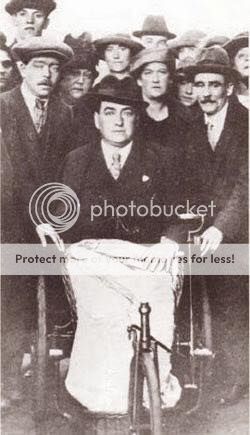 2 Cor 5:7 " ... for we walk by faith, not by sight. ..."
2 Cor 5:7 " ... for we walk by faith, not by sight. ..."John Traynor was born and reared in Liverpool. His Irish mother died when he was still quite young, but her faith, her devotion to Mass and Holy Communion and her trust in the Blessed Mother stayed with him as a memory and a fruitful example. "She was a daily communicant when few people were," he told me.
IN THE FIRST WORLD WARThe first world war broke out in 1914, and John Traynor was mobilized with the Royal Naval Reserve, to which he belonged. He was in the naval brigade that took part in the unsuccessful Antwerp expedition of October, 1914, and was in the last battalion to retreat. He was carrying one of his officers to safety, when he was hit on the head by shrapnel. He did not regain consciousness until five weeks later, when he woke up after an operation in a marine hospital in England. He recovered rapidly and went back into service. In 1915, lent to the 1st Dublin Fusiliers, as physical instructor, he was a member of the expeditionary force sent to Egypt and the Dardanelles.
On April 25th, 1915, he took part in the landing from the steamship 'River Clyde' at Gallipoli. He was in charge of the first boat to leave the ship and was one of the few to reach the shore that day. From their positions in the steep banks above the beach the Turks raked the 'Clyde' and the boats with deadly gunfire. The casualties were so heavy that the operation was suspended until nightfall. Meanwhile all the officers in the landing parties had been killed, and Traynor found himself in charge of about 100 men, who took cover in a shallow trench. A Catholic chaplain, Father Finn, was killed in the second boat, from which he fell. Traynor dragged him from under the barbed wire and later he and his comrades buried him on shore.
After dusk more officers and men landed, and the small force began to fight its way, with severe losses, up to the sand hills. For days the bitter fighting continued. Traynor took part, without injury, until May 8th, when he was hit by machine-gun fire during a bayonet charge.
He seems to have been literally sprayed with bullets. He was wounded in the head and chest, while a bullet tore through the inner side of his upper right arm and lodged under the collarbone.
Medical corps men brought him back, dazed and suffering, to the beach, and he was shipped to the base hospital at Alexandria, Egypt. Now began his long years as an invalid and as the patient of unsuccessful operations. A well-known English surgeon, Sir Frederick Treves, operated on him in Alexandria, in an attempt to sew together the severed nerves in the upper arm, which the bullet wound had left paralysed and useless. The attempt failed, and so did another, made by another surgeon, on the hospital ship that brought Traynor from Alexandria to England. In September, 1915, in the Haslar naval hospital, England, a third operation was performed with the same object - and the same result.
While on the hospital ship Traynor suffered his first epileptic attack. These attacks became frequent.
INCURABLEThe surgeon-general of the navy now advised amputation of the paralysed arm, as there seemed to be no hope of ever joining the torn and shrunken nerves. Traynor would not consent. In November, 1916, another doctor tried to suture the nerves, bringing the number of unsuccessful operations up to four. By this time Traynor had been discharged from the service, first on 80 per cent pension, then on 100 per cent as being permanently and completely disabled. He had to spend months in various hospitals as an epileptic patient. In April, 1920, a doctor realized that the epilepsy was probably the result of the head wounds, and operated on the skull. Whether bits of shrapnel were found and removed is not known, but we do know that the operation left Traynor with an open hole about an inch wide in his skull. Through this opening the pulsations of the brain could be observed. A silver plate was inserted to shield the brain. The epileptic condition was no better after the operation. The fits were as frequent as three a day. Both legs were partly paralysed, and nearly every organ in Traynor's body was impaired.
An ambulance brought him back to Liverpool, where he lived with his wife and children in a house in Grafton Street. "Were very poor," he told me. The Ministry of Pensions supplied him with a wheel-chair; in this he would sit for hours outside the house. He had to be lifted from his bed into the chair and back again.
The year 1923 - the eighth after he became a casualty in Gallipoli - found him leading this helpless existence. I have counted the names of ten doctors through whose hands he had passed up to then. The result of all their efforts and examinations was to prove that he was completely and incurably incapacitated. Unable to stand or walk, subject to frequent epileptic fits, with three open wounds, one of them in his head, without the power of feeling or movement in his torn and shrivelled right arm, he was indeed a human wreck. Somebody arranged to have him admitted to the Mossley Hill Hospital for Incurables on July 24th, 1923. But by that date Jack Traynor was to be in Lourdes.
What follows is his own narrative, as I wrote it down and as he checked it.
JOHN TRAYNOR'S NARRATIVEI had always had a great devotion to our Blessed Lady, having acquired it from my mother especially. I felt now that if Our Lady's shrine at Lourdes was in England, I would go there often. But it seemed to be a far-away place that I could never reach.
In the month of July, 1923, I was at home, helpless as usual, when a neighbour woman came into the house and spoke of an announcement that had been made in our parish. A Liverpool diocesan pilgrimage was being organized for Lourdes. It would cost thirteen pounds to go. A down payment of one pound would engage a place.
My wife was out in the yard and I called her in. I found afterwards that she had already heard about the pilgrimage, but had decided not to tell me, fearing that I'd want to go. I told here to go upstairs and get a certain box in which we kept a gold sovereign, which my brother had given me and which we were treasuring for some special emergency. She asked me what I wanted to do with it now. I said that I wanted to give it to Mrs Cunningham, a neighbour,as a first payment on a ticket to Lourdes. My wife was very disturbed,but finally did as I told her, and the neighbour went off to make the booking for me.
A few days later, one of the priests in charge of the pilgrimage came to see me. He was upset at the thought of my going and wanted me to cancel my booking.
"You cannot make the trip," he said. "You will die on the way and bring trouble and grief to everybody."
My answer was that I had made my first payment, I had booked my place and I was going to Lourdes!
After much talking,he said finally: "Well, you won't be allowed to travel unless the doctor gives his approval. If you get a medical certificate, we'll take you." Clearly he seemed to think that it was impossible.
I thought that my doctor would approve of the trip, but he refused. We called in several doctors and every one of them said that it would be suicide. Later, when the Ministry of Pensions learned that I had gone to Lourdes, they protested very strongly.
The priest came again to visit me and flung himself across my bed, begging me to give up the idea. I would not - and finally succeeded in going without any medical certificate. To raise the twelve pounds,the balance due on my ticket, we sold some of our belongings and my wife pawned even her few bits of jewellery.
By this time it had got around Liverpool that this crippled and paralysed ex-serviceman wanted to go to Lourdes, and the papers began to write about it. I was the centre of more attention than I liked. Everybody, with the exception of my wife and one or two relatives, told me I was crazy.
DEPARTURE FOR LOURDESThe day for leaving Liverpool came. The pilgrims were to travel on two trains. It was a terrible task to prepare me. I hardly realized what the journey was, and I had nothing I could take with me, except the few shillings left over after we had paid for the ticket. My wife lifted me out of bed, and my brother Francs got me into my invalid chair. There I remained, while the others attended the 4 a.m. Mass at St Malachy's. Then, rushed and excited and hoping to avoid public notice, they raced me down through all the back streets of Liverpool to get me to the station.
At the station, there was a large crowd of pilgrims and their friends. Already my case was well known through the newspapers, and people began to fuss around us, making it still more difficult for me to get to the platform. I did reach it - just too late! The first train was about to leave. The priest-director came up to me in great agitation and said: "Traynor, you're too late! We can't get you on the train now. In Heaven's name, take this as a sign that you are not to come. You will only die on the journey."
I said: "Father, I have paid for my ticket to Lourdes and I'm going to Lourdes."
He said: "You'll die on the way."
I said: "Then I'll die in a good cause."
There was another train, and I said that they could put me in the coal tender or anywhere they liked, as long as they put me on the train. By being obstinate about it, I won my point, was placed on the second train amid scenes of excitement and confusion, and began my journey to Lourdes.
In 1923 arrangements for taking care of the sick on the English pilgrimages to Lourdes were not by any means as good as they were later on. The experience was very trying.
I remember practically nothing of the journey, except seeing a number of sick people on stretchers beside me on platforms and docks, some of them bleeding, all of them suffering. I believe that I was very sick on the way. Three times they tried to take me off the train in France to bring me to a hospital, as I seemed to be dying. Each time there was no hospital where they stopped, and the only thing to do was to go on again, with me still on board.
AT LOURDESWe reached Lourdes on July 22nd, and I was transferred with the rest of the sick to the 'Asile' hospital in the domain of the Grotto. I was in a terrible condition, as my wounds and sores had not been freshly bandaged since I left Liverpool.
Meanwhile a Protestant girl from Liverpool had come to the Continent on a holiday tour. She got tired of all the usual show places and happened to come to Lourdes. She was a trained nurse and, seeing all the sick, she offered her services to help in the 'Asile.' Her parents in England, upset at her decision to stay as a volunteer worker in Lourdes, sent out her sister to keep her company. The two girls went down to see the Liverpool pilgrims.. They remembered having seen me sitting in my wheelchair outside my house at home and they volunteered to take care of me. I gladly accepted their kind offer, and they washed and dressed my sores and looked after me during my stay in Lourdes.
Ours was a large pilgrimage, comprising about 1,200 people in all, including many priests, headed by the late Archbishop Keating of Liverpool. We spent six days in Lourdes. During that time I was desperately ill. I had several haemorrhages as well as epileptic fits. In fact, one woman took it upon herself to write to my wife, saying that there was no hope for me and that I'd be buried in Lourdes.
In spite of my condition, however, I succeeded in being bathed nine times in the water from the Grotto spring and I was taken to the different devotions in which the sick could join. On the morning of the second day I had a bad epileptic fit as I was being wheeled to the baths. Blood flowed from my mouth and the doctors were very much alarmed. As I came to, I could hear them saying: "Better take him back to the 'Asile' at once."
I protested, saying: "No, you won't. I've come to be bathed and I'm not going back."
"You'll die in the bath," they told me.
"Very well," I said. "If I do, I'll die in a good place."
I put the brake on the wheel-chair by holding the wheel with my good hand, the left one, and the brancardiers (volunteer stretcher-bearers) had to give in. They took me into the bat and bathed me in the usual way. I never had an epileptic fit after that.
MEDICAL EXAMINATION(On July 24th Drs Azurdia, Finn and Marley, who had come with the pilgrimage, examined Traynor at Lourdes. Their signed statement is on record. It testifies that they found him to be suffering from:
Epilepsy ["We ourselves saw several attacks during his journey to Lourdes"];
Paralysis of the radial, median and ulnar nerves of the right arm;
Atrophy of the shoulder and pectoral muscles;
A trephine opening in the right parietal region of the skull; in this opening, about 2.5 cm., there is a metal plate for protection;
Absence of voluntary movement in the legs and loss of feeling;
Lack of bodily control.
We were to leave on the morning of July 27th. This afternoon of July 25th came and I seemed to be as bad as ever. Already preparations were being made for the return journey. A young Frenchman, Felix Douly, who used to come to the 'Asile' selling rosaries and medals, came into our ward, and the last few shillings I had I spent on the little religious souvenirs for my wife and children. Then it was time to get ready for the baths.
MIRACLEI was wheeled down to wait my turn. There were many to be bathed and we all wanted to be finished before the afternoon procession of the Blessed Sacrament, which began at four o'clock. My turn came, and when I was in the bath, my paralysed legs became violently agitated. The brancardiers became alarmed once more,thinking that I was in another fit. I struggled to get on my feet, feeling that I could easily do so, and wondered why everybody seemed to be against me. When I was taken out of the bath, I cried from sheer weakness and exhaustion.
The brancardiers threw my clothes on hurriedly, put me back on the stretcher and rushed me down to the square in front of the Rosary Church to await the procession. Practically all the other sick were already lined up. I was the third last on the outside, to the right as you face the church.
The procession came winding its way back, as usual, to the church, and at the end walked the Archbishop of Rheims, carrying the Blessed Sacrament. He blessed the two ahead of me, came to me, made the sign of the cross with the monstrance and moved on to the next. He had just passed by when I realized that a great change had taken place in me. My right arm, which had been dead since 1915, was violently agitated. I burst its bandages and blessed myself - for the first time in years.
I had no sudden pain that I can recall and certainly had no vision. I simply realized that something momentous had happened.
I attempted to rise from my stretcher, but the brancardiers were watching me. I suppose I had a bad name for my obstinacy. The held me down and a doctor or a nurse gave me a hypo. Apparently they thought that I was hysterical and about to create a scene. Immediately after the final Benediction they rushed me back to the 'Asile.' I told them that I could walk, and proved it by taking seven steps. I was very tired and in pain. They put me back in bed and gave me another hypo after a while.
(Drs Azurdia, Finn and Marle certify that they examined Traynor on his return to the 'Asile' after the procession of the Blessed Sacrament. Apparently this was to see if he could really walk, as he claimed. "We find that he had recovered the voluntary use of his legs; the reflexes exist. There is intense venous congestion of both feet, which are very painful. The patient can walk with difficulty.")
They had me in a small ward on the ground floor. As I was such a troublesome case, they stationed brancardiers in relays to watch me and keep me from doing anything foolish. Late that night they placed a brancardier on guard outside the door of the ward. There were two other sick men in the room, including one who was blind.
The effect of the hypos began to wear off during the night, but I had no full realization that I was cured. I was awake for most of the night. No lights were on.
MIRACLE MADE MANIFESTThe chimes in the basilica above the Rosary rang the hours and half-hours as usual through the night, playing the air of the Lourdes 'Ave Maria.' Early in the morning I heard them ringing, and it seemed to me that I fell asleep at the beginning of the 'Ave.' It could have been a matter of only a few seconds, but at the last stroke I opened my eyes and jumped out of bed. First, I knelt on the floor to finish the rosary I been saying, then I dashed for the door, pushed aside the two brancardiers and ran out into the passage and the open air. Previously I had been watching the brancardiers and planning to evade them. I may say here that I had not walked since 1915 and my weight was down to eight stone.
Dr Marley was outside the door. When he saw the man over whom he had been watching during the pilgrimage,and whose death he had expected, push two brancardiers aside and run out of the ward, he fell back in amazement. Out in the open now, I ran towards the Grotto, which is about two or three hundred yards from the 'Asile.' This stretch of ground was gravelled then,not paved, and I was barefoot. I ran the whole way to the Grotto without getting the least mark or cut on my bare feet. The brancardiers were running after me but they could not catch up with me. When they reached the Grotto, there I was on my knees, still in my night clothes, praying to Our Lady and thanking her. All I knew was that I should thank her and the Grotto was the place to do it. The brancardiers stood back, afraid to touch me.
The news was beginning to spread, even though it was still early in the morning. After I had prayed for about twenty minutes, I got up surprised and not pleased to find a crowd of people gathered around, watching me. They drew aside to let me pass as I walked back toward the 'Asile.' At the far end of Rosary Square stands the statue of Our Lady Crowned. My mother had always taught me that when you ask a favour from Our Lady or wish to show her some special veneration you should make a sacrifice. I had no money to offer, as I had spend my last few shillings on rosaries and medals for my wife and children, but kneeling there before the Blessed Mother, I made the only sacrifice I could think of. I resolved to give up cigarettes. All this time, while knowing that I had received a great favour from Our Lady, I had no clear recollection of all the illness that had gone before.
By now the hotels of Lourdes were emptying themselves, and a crowd of excited people had gathered in front of the 'Asile.' I could not understand what they were doing there, as I went in to dress. I put my clothes on, in a hurry, but kept away from the bed, for fear those doctors and brancardiers would tackle me again and treat me as a sick man once more.
I went to the washroom to wash and shave. Other men were there before me I bade them all good morning, but none of them answered me - they just looked at me in a scared way. I wondered why.
It was still pretty early in the morning when a priest, Father Gray, who knew nothing about my cure, entered the ward where I was and asked if anybody there could serve Mass. I answered that I would be glad to, and went off and served his Mass in the chapel of the 'Asile.' It did not seem strange to me then that I could do this, after being unable to stand or walk for eight years.
I went in to breakfast in the dining-room of the 'Asile.' The other men drew back, as if they were afraid of me. I could not grasp the situation nor could I understand why people were staring at me so hard. After breakfast, when I tried to walk out from the 'Asile,' I found a large crowd outside. They made a rush for me, and I had to retreat, going into the little enclosure, feeling rather upset.
A Mr Cunningham came out to talk to me. I could see that he found it had to control his excitement.
He said: "Good morning, Jack. Are you feeling all right?"
"Yes, Mr Cunningham," I answered, "quite all right. Are you feeling all right?" Then I asked: "What are all those people doing outside?"
"They're there, Jack, because they're glad to see you."
"Well, it's very nice of them and I'm glad to see them, but I wish they'd leave me alone."
He told me that one of the priests on the pilgrimage - the one who had opposed my coming - was anxious to speak to me. He was in his hotel in the town, and the problem was how to get to him through the crowd. Finally somebody got an open, horse-drawn carriage into the enclosure in front of the 'Asile.' Mr Cunningham and I sat in the carriage, and the old French driver started off. But the horse had taken only a few paces when the crowd surged up against the carriage in such a way that the driver was afraid to go any further. We had to get out and go back to the 'Asile.'
Finally, after appeals to the crowd, I got through in another carriage, which brought me up to the hotel where I found the priest. He, too, asked me if I was all right. I was quite surprised by the question. I told him that I felt quite well, thanks, and that I hoped he did, to. He broke down and began to cry.
That day was a nightmare of excitement and crowds. I was the centre of attraction for all the people in Lourdes, it seemed to me.
We left on the nine o'clock train next morning, July 27th. I found that a first-class compartment had been set aside for me. I protested against taking it but I had to give in.
(Early in the morning of July 27th the three doctors examined Traynor before the pilgrimage left Lourdes. Their statement says that:
He can walk perfectly;
He has recovered the use and function of his right arm;
He has recovered sensation in his legs;
The opening in his skull has diminished considerably.
There have been no more epileptic crises.
When Traynor took off the last of his bandages on returning from the Grotto on the morning of July 26th, he found every one of his sores healed.)
The train went up through France, and I was still in a sort of daze. At one of the stops, the door of my compartment opened, and to my amazement I saw the red skull-cap of Archbishop Keating. He came up into the compartment and I knelt to get his blessing. He raised me up, saying: "John, I think I should be getting your blessing." I could not understand why he said that. Then he led me over, and we both sat down on the bed. Looking at me, he said:
"John, do you realize how ill you have been and that you have been miraculously cured by the Blessed Virgin?"
Then everything came back to me, the memory of my years of illness and the sufferings of the journey to Lourdes and how ill I had been in Lourdes itself. I began to cry, and the Archbishop began to cry,and we both sat there, crying like two children. After a little talk with him, I felt composed. Now I realized fully what had happened.
ARRIVING HOMEMeanwhile the news of the miracle had been telegraphed to the Liverpool papers, but my wife had not heard of it. Somebody on the train - Father Quinlan or Father McKinley - said to me that I should send her a wire. I did not care to make a fuss in a telegram, so I just sent her this message: "Am better - Jack."
One of the priests in our parish, Father Dawber, got the news from the papers and rushed down to my wife, for fear the shock might be too much for her. By now the train was due to arrive shortly in Liverpool. He asked her if she had any news of me.
"I had a letter from a woman on the pilgrimage," she answered, "and it upset me very much. It said that Jack was dying and would never leave Lourdes alive. But just to-day I had a telegram from himself saying that he is feeling better."
She thought that I was only back to my ordinary state of bad health, having got over the danger I seemed to be in, while in Lourdes.
"The train will be in shortly, Mrs Traynor," said Father Dawber, "and I think it would be nice to go down to meet it. But suppose you find Jack improved quite a bit, will you promise me that you won't get upset?"
"To be sure, Father," she answered, "I'll promise. And I'll be glad if I see him improved."
"Suppose you see him walking, Mrs Traynor?"
"Father, I'm afraid I'll never see Jack walk. But anyhow you can rely on me."
My wife went down to the station with her friend, Mrs Reitdyk. It seemed as if all Liverpool had gathered there. The people had seen the news of the miracle in the evening papers and had come down to see me. There were extra police on duty to handle the crowd, while railway officials stood at the entrance to the platform to keep the people from rushing the train.
With difficulty my wife and her friend reached the platform gate, where she told the official that she was Mrs Traynor and asked to be allowed through.
"Well," replied the man, "all I can say is that Mr Traynor must be a Mohammedan, because there are seventy or eighty Mrs Traynors on the platform already!"
Anyhow he let them through, and they waited on the platform. Meanwhile the railway company had decided that the only safe thing was to stop the train outside the station. They did this, and then the Archbishop walked towards the crowd, now a huge one, and addressed it. He asked the people to be orderly, and asked them to promise that if they just saw Traynor walk down the platform, they would be satisfied and would disperse. They assured him that they would.
But when I did appear on the platform, there was a stampede. The police had to draw their batons to force a passage for my wife and myself to the taxi. My brother got a blow on the side of the hear before he could fight his way into the taxi with me.
We drove home, and I cannot describe the joy of my wife and children.
PERMANENT CUREI am in the coal and haulage business now. I have four lorries or trucks and about a dozen men working for me. I work with them. I lift sacks of coal weighing around 200 pounds with the best of them and I can do any other work that an able-bodied man can do. But officially I am still classified as 100 per cent disabled and permanently incapacitated!
I never accepted a penny from anybody at the time of my cure or after it. I came back from Lourdes penniless, except for my way pension. I have never permitted any money to come to my family in connection with my cure or the publicity that has followed it. Nevertheless, Our Lady has improved my temporal affairs, too, and thanks be to God and to her, I am now comfortably situated, and my children are all well provided for. Three of them have been born since my cure, one a girl whom I have named Bernadette.
The two non-Catholic girls who looked after me when I came to Lourdes joined the Church as the result of my cure. Their family at home in Liverpool followed their example, and so did the Anglican minister of the church they had been attending. I know of another parson who would like to follow suit, only that he is a marred man with a family. A large number of conversions in Liverpool have resulted from the miracle.
I go to Lourdes now every year and work as a brancardier there. I have gone twice and three times in one season.
FINAL MEDICAL REPORTThe official report, issued by the Medical Bureau at Lourdes on October 2nd, 1926, declared that "this extraordinary cure is absolutely beyond and above the powers of nature."
The most striking part of this multiple miracle is probably the instantaneous cure of the right arm. The nerves had been severed for eight years. Four surgical operations had revealed that the were truly severed and had failed to reunite them. More than mere suture would be necessary before the arm could feel and move again; the shrunken nerves would need to go through a long process of regeneration A feat that expert surgery had failed four times to do and a process that requires months of gradual restoration were achieved instantaneously as the Blessed Sacrament was raised over John Traynor.
Another group of experts testified - though unconsciously - to the miracle. These were the doctors and officials of the War Pensions Ministry. These gentlemen, after years of examination, treatment and inspection, certified that John Traynor was incurable, and they showed the strength of their conviction by awarding him full disability pension for life. They have never revoked that decision.
EPILOGUEJohn Traynor died on the eve of the feast of the Immaculate Conception, 1943. The cause of his death was hernia, in no way related to the illness and wounds of which he was cured in Lourdes. For more than twenty years he lived a vigorous life, every moment of which he owed to the miracle of July, 1923. For more than twenty years he was a standing, stalwart testimony to the power of Almighty God and the efficacy of the intercession of Mary Immaculate. In his rugged person he presented a tangible argument with which unbelief could not wrestle without being overthrown. For some this miracle has brought the surrender which is a gain and a victory. Others - it has happened from the beginning and will happen to the end - have taken flight from the facts, in one direction or another.
Miracles such as the cure of John Traynor are, of course, rare, while they are real. They point the way not to a wide-open exit from all physical suffering but rather to the spiritual recoveries and triumphs that are certain to come from unhesitating faith and a childlike approach to Jesus Christ, through Mary, His Mother and ours.
Partial Source:
http://www.olrl.org/stories/lourdes.shtml 

 Jul 7 2017, 01:41 PM
Jul 7 2017, 01:41 PM
 Quote
Quote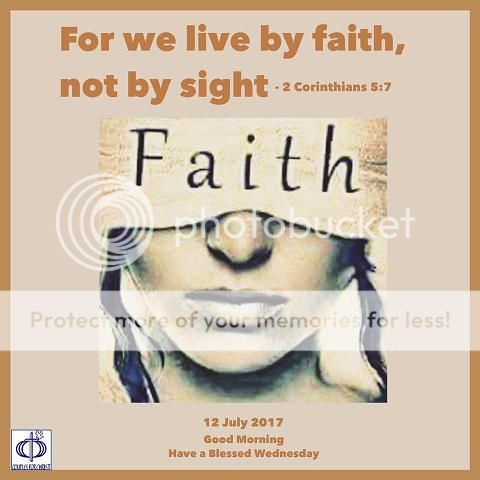



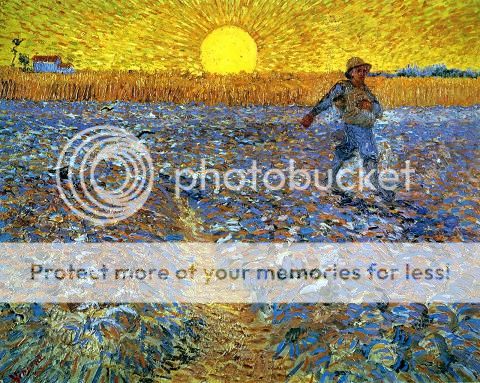
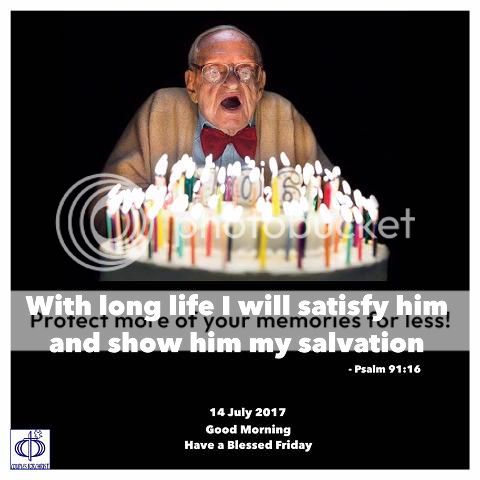
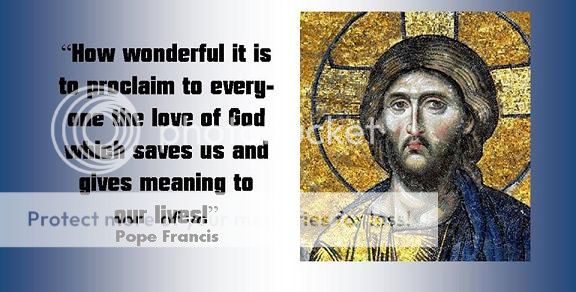

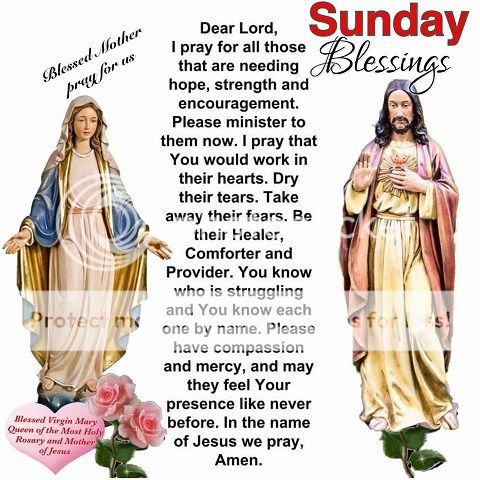
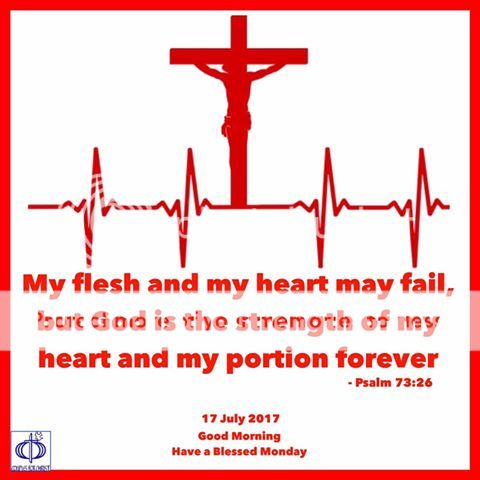


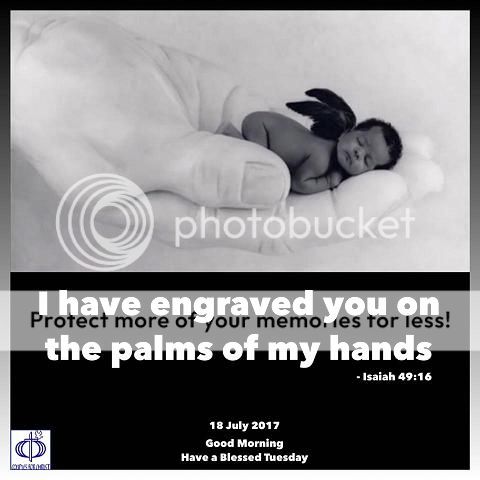

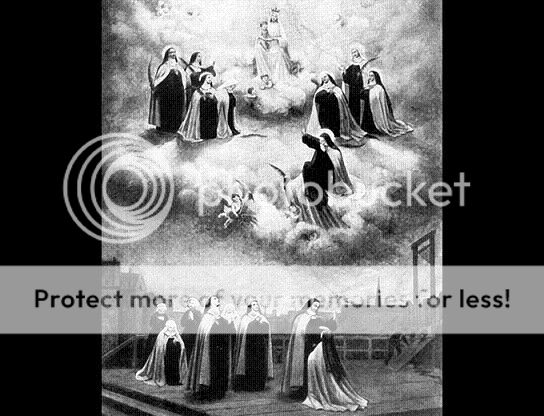



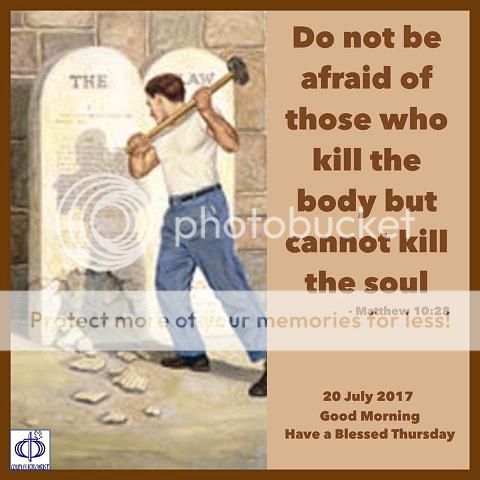
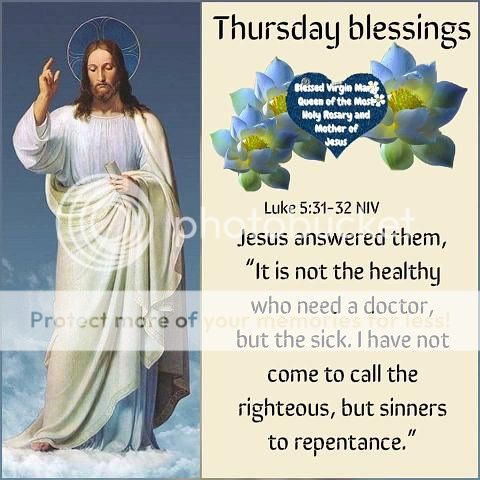


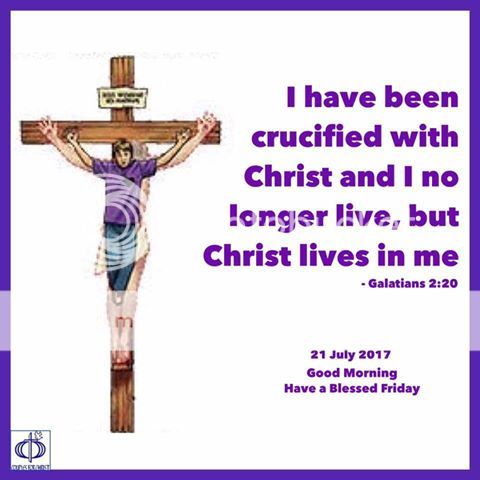

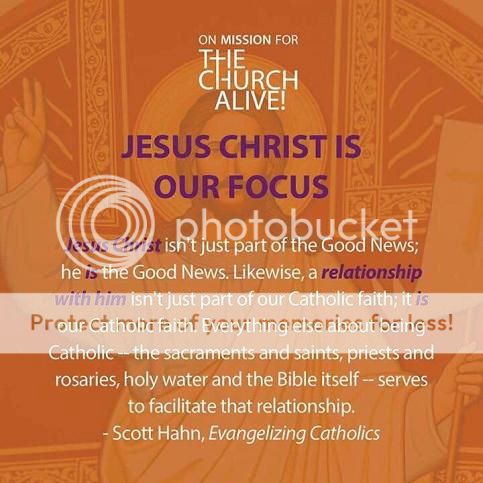
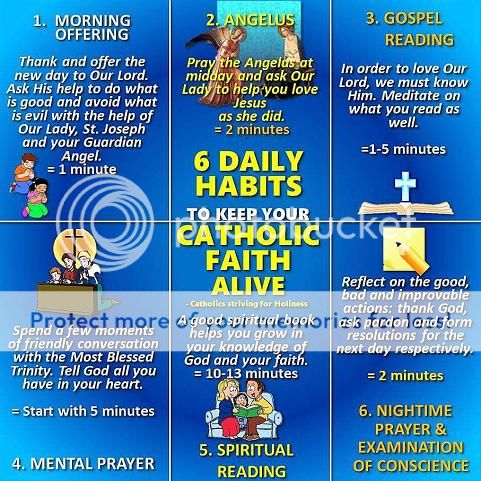


 0.1065sec
0.1065sec
 0.52
0.52
 7 queries
7 queries
 GZIP Disabled
GZIP Disabled